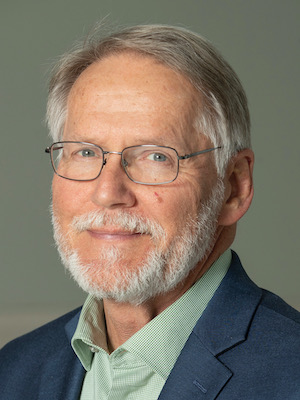
Editor’s note: “Look Back” is a series designed to highlight articles from the Good Faith Media archives that remain relevant or historically interesting. If you have an article from our archives that you’d like us to consider including in this series, please email your suggestion to [email protected]. A version of this article previously appeared at BaptistsToday.org on Oct. 1, 2014. At the time of publication, Cartledge was contributing editor and curriculum writer for Baptists Today.
Does the world see Christianity as a friendly and hospitable faith? We’d like to think so, but the truth is that many people perceive Christians primarily as judgmental folk who are focused on the afterlife and care little about others’ present needs.
That’s a problem that should concern the church, Amy Oden told participants during the annual Reavis Lectures at Campbell University Divinity School. Oden, who is professor of Early Church History and Spirituality at Saint Paul School of Theology at Oklahoma City University, focused on the history and practice of gospel hospitality in two lectures September 30.
The importance of Christian hospitality was a central tenet of the early church, Oden said, citing several early church writers who promoted the importance of showing kindness to others, especially those who are poor, sick, imprisoned, or strangers.
The preacher known as Pseudo-Clementine, writing in the early fourth century, argued that Christians should practice hospitality to all persons because the image of God is in everyone. Respecting the image of God in others is a way of showing worship to God, he said.
About the same time, the North African teacher Lanctantius taught that Christians should show hospitality even to the dead, and for the same reason. During a time of plague, when bodies piled up because no one would touch them, he encouraged Christians to take the risk of removing and burying the shunned bodies, standing in the place of relatives to show respect to the dead and honor the image of God in them. In doing so, he said, Christians would do out of kindness what absent relatives would have done by affection.
John Chrysostom, the fourth century bishop of Constantinople (modern Istanbul), encouraged church members to voluntarily host traveling soldiers, who depended on the local population for housing. Instead of just supporting a charity to host the soldiers, each family should have a “Christ room,” he said, where hospitality could be shown within the home. Christians should recognize that they were once strangers, too, he said.
Julianus Pomerius, a fifth century North African monk who later relocated to Gaul, added an interesting twist. He noted that unexpected visitors could upset the ordered routine of monastery life, but that monks should be willing to accommodate them despite the disruption. Even if fasting, he said, monks should be willing to “unbend” for the sake of others lest their fasting bring sadness to the visitors.
In a second lecture, Oden spoke to the meaning and practice of hospitality. Gospel hospitality is not what we find in the “hospitality industry,” she said, nor is it measured by gracious accommodations or by effusive greetings. If visitors to a church are greeted warmly by ushers at the door but not welcomed by the members inside, for example, they haven’t experienced true hospitality.
“Gospel hospitality is welcoming the stranger as Jesus for the sake of the good news,” Oden said. “It is a spiritual posture as well as a spiritual practice.”
Oden cited the example of Abraham and Sarah receiving visitors under the oaks of Mamre (Genesis 18) as paradigmatic for teaching hospitality. That text was quoted more frequently than any other during the first 500 years of the church, she said, more than any gospel passage.
The four marks of gospel hospitality are “readiness, risk, repentance, and recognition,” Oden said. Like blazes on a hiking trail, they indicate we are on the right path to gospel hospitality.
Readiness involves intentionality and willingness to accept the difficulty of showing hospitality, she said, as well as the curiosity necessary to learn about others and their needs. There is always risk in hospitality, she said, especially to others we don’t know. It can disrupt our lives and make us uncomfortable – but in the process, we find that we are changed as the risk and disruption involved in helping others results in a blessing to the host. Such change reflects the concept of repentance, she said. “If our churches are not being changed,” Oden said, “we may not be practicing gospel hospitality.” Churches should point to ways that they are being changed through ministering to others, she said, celebrating ways in which children’s programs or feeding programs bring change and blessing to those who practice gospel hospitality.
The end result of showing true hospitality is recognition, Oden said: “We will see Jesus.” Such recognition is not something we can manufacture, she said, but as Jesus taught in Matt. 25:34-40, when we help the strangers, the poor, the imprisoned, or the sick, it is as if we have ministered to Jesus himself.
The source of gospel hospitality is God, Oden said: “Welcome is God’s doing.” As we accept God’s welcome into abundant life and participate in the life of God, we share that welcome with others. Jesus taught that the kingdom of God has come near. In participating in the kingdom, Oden said, we meet Jesus again. When we welcome strangers we welcome Jesus, and we are changed.
And in pondering these thoughts, we are challenged.
Professor of Old Testament at Campbell University Divinity School in Buies Creek, North Carolina, and the Contributing Editor and Curriculum Writer at Good Faith Media.

